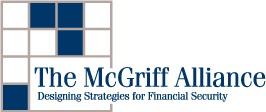 "It ain't what you don't know that gets you into trouble. It's what you know for sure that just ain't so." Mark Twain said it more than 100 years ago. In 2015, The Big Short reminded us of its relevancy.
"It ain't what you don't know that gets you into trouble. It's what you know for sure that just ain't so." Mark Twain said it more than 100 years ago. In 2015, The Big Short reminded us of its relevancy.
The Big Short was a Hollywood blockbuster, earning more than $130 million in the United States, winning several Academy Awards and teaching invaluable lessons about human nature, Wall Street greed, and the toll both often take on average, hardworking Americans.
The movie is based on Michael Lewis's best-selling book about the housing bubble that led to the Great Recession and left many people's financial lives in ruins.
Now—more than a year after the movie debuted on the big screen—is a great time for anyone practicing prosperity economics to reexamine The Big Short's lessons about "the giant lie at the heart of the economy" so that the mistakes that were made nearly a decade ago are not repeated.
Sure, the economy seems to be improving. Jobs seem to be more prevalent. The housing market seems to be recovering. People's lives are getting back to normal.
But is that really such a good thing?
If homeowners, investors and everyday employees didn't understand the language of finance before, are they really taking time to do so now? Or are they content to simply go along with the program, as choreographed by the wolves of Wall Street?
After all, as one character in the movie so sagely suggested, "No one can see a bubble; that's what makes it a bubble."
Your job, as someone committed to leveraging prosperity economics to build a brighter financial future for yourself, is to see the bubble—and the only way to do that is to understand what happened to cause the economic meltdown back in 2008. For example:
- What makes subprime mortgages, well, subprime?
- How does Wall Street take "old" products, repackage them as something "new" and sell them?
- What is a collateralized debt obligation (CDO) and how does it put large amounts of money at risk by the securitization of mortgages?
If you've watched the movie, you know that the director uses cutaways with stars such as Margot Robbie, Anthony Bourdain and Selena Gomez to answer these questions. It's an educational, entertaining and effective approach—and its lessons should not be forgotten.
That's why it's important to revisit the film and make sure you're not falling prey to the same slimy behavior that ruined so many families' finances. If you've seen the movie, watch it again. If you haven't seen it, watch it.
And definitely heed its warnings.
Five lessons from The Big Short
Here's a look at five lessons from The Big Short everyone who practices prosperity economics should learn and leverage to build brighter financial futures for themselves:
- Even a little leverage can lead to big pain. Companies that operate in the financial market frequently use leverage to increase their potential profits. It's a common practice, but that doesn't mean it's a good one—especially when the markets take a turn for the worse. It's also not always good for your personal finances.
Sure, real estate and brokerage accounts that are leveraged can lead to big gains, but they can also lead to big losses. In short, leverages accentuate both gains and losses. And when the largest banks and financial institutions in the world use leverage with derivatives, CDOs and other highly complex securities, the results can leave everyone—bankers and average Americans alike—reeling. -
Your finances are only as strong as their weakest link. Even though they might seem entirely unrelated, every aspect of the economy is connected. The banking industry, the stock market, housing, the mortgage industry—they're all connected. And when one fails or begins to fall apart, it will have an effect on the others.
This is equally as true for your personal financial health. So follow the principles of prosperity economics and diversify your income streams and investments. But be cognizant of the fact that they are all related and do everything you can to make sure that they are all strong.
-
Catastrophe could be right around the corner. One of the most amazing aspects of The Big Short is how almost nobody would admit that the market was about to crash—even though there were plenty of indicators.
It was amazing, but maybe not surprising. After all, nobody can see bubbles, which is why they're bubbles. Everyone—investors, money managers, financial analysts and journalists alike—generally wants to to be optimistic about the future; it's what pumps more money into the economy. But it's not healthy, and it can lead to catastrophe.
So be wary of financial forecasts that are too rosy. Let facts guide your financial decisions and you'll likely be better off.
-
Greed is not good. There are people in the world who think greed is good. In fact, Gordon Gecko proclaimed as much in The Big Short.
He was lying. Greed is not good. Not only can it cloud your decision-making abilities, but it can also hurt people (yourself included). It also flies in the face of the principles of prosperity economics. But it exists, so you might as well identify the people, firms and organizations that operate under the principle that greed is good and steer clear of them (or at least understand their agendas and how they might be trying to take advantage of you).Then, take matters into your own hands. Don't be greedy, but definitely be smart. Eschew financial advisers that are too greedy. Make decisions that are sustainable and based on building your financial security—and not at the expense of someone else.
- Protect yourself. It can be incredibly tempting to take financial risks. After all, with great risk comes great reward. But too often a risk turns into a fiasco because you wind up trusting financial advisers or government regulators (and de-regulators) who make mistakes.
Protect yourself against risk by diversifying, investing in some safe opportunities and saving. In other words, practice prosperity economics. Otherwise, you could take a big risk and pay a big price.
Which story will you tell?
Some say The Big Short is a drama. Others say it's a comedy. Most likely, it's a tragedy. For sure it's entertaining. But it's also educational.
The question you need to ask yourself is this: What will your financial story be? Hopefully, it's not a comedy, a drama or a tragedy. Hopefully, it's an inspirational story of someone who successfully identifies obstacles, opportunities and sound financial practices—and then achieves financial prosperity.
The Big Short makes it clear that nothing in life is guaranteed. But at least if you are aware that, like Mark Twain said, what you know for sure might not be true, you can protect yourself.
And you can by practicing prosperity economics, which means diversifying, saving and investing in things that allow you to be in control of—and easily access—your money when you need it (such as life insurance).
These are the lessons from The Big Short.
Sent from the Land of Possibilities!
image credit: BagoGames






Leave a comment